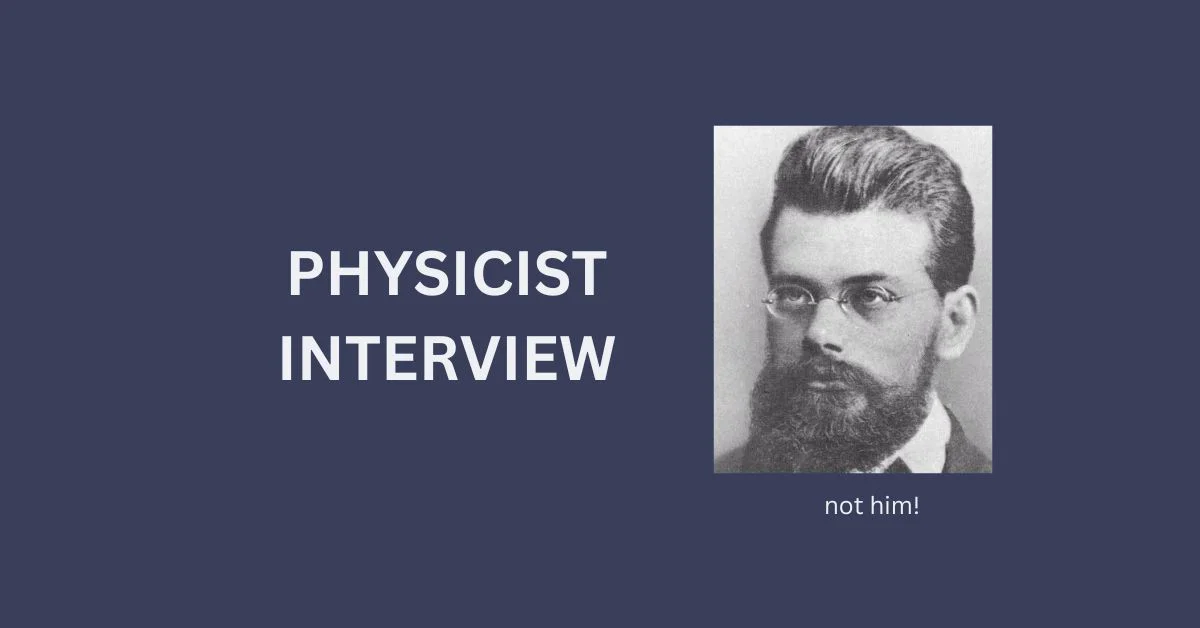This is a republishing of the Metaphysics of Physics podcast interview with the Spanish physicist Juanma. We talk about physics, the role of philosophy in physics and what can be done to improve the state of modern physics. You can find more of our interviews here.
For those unaware, the Metaphysics of Physics was the previous incarnation of this site and for a time in included a podcast.
You can read the transcript below or use the audio player below to listen to the interview. Or do both if you prefer!\
Click here to download the episode.
Introduction
[Please note that this may not exactly match the audio. However, there should be no significant differences. Also, note that the audio may of poorer quality than previous episodes, so you might want to keep this in mind.]
Hi everyone! This is episode nine of the Metaphysics of Physics podcast.
I am Ashna, and I your host and guide through the hallowed halls of the philosophy of science. Thanks for tuning in!
With this show, we are fighting for a more rational world, mostly by looking through the lens of the philosophy of science. We raise awareness of issues within the philosophy of science and present alternative and rational approaches.
You can find all the episodes, transcripts and subscription options on the website at rationalmetaphysician.com.
Today we have an interview with Juanma, physics and mathematics researcher, Objectivist and a fellow student of the philosophy of physics!
Dwayne originally performed this interview. But, for various reasons we won’t go into here, his segments were rerecorded by myself.
The audio may be of lower quality than normal. This is due to the fact that the interview was performed over Skype and the connection was of fairly low quality.
For the most part, the audio should be of acceptable quality, but if parts are less clear there is a transcript which may help to clarify parts of the audio which might be difficult to make out.
Note that the transcript includes the answers Juanma prepared in advance and does not include extra commentary improvised during the interview. This extra content is nice, but it is not crucial. You should be able to get the gist of the answers provided to the questions from the transcript.
But, without further ado, let us start the interview.
Interview
Juanma, please introduce yourself to our audience.
I am Juanma, my name is Jaun Manuel. I am a Spanish physicist and I majored in theoretical physics. And then I spent a year doing research in the foundation of quantum mechanics.
Now I am living in London doing an MSc course in quite a different thing, which is the physics of complex systems. And I am also interested in philosophy and quantum mechanics interpretations. Which has been my motive even since I got into the science world.
1) What did you study and why?
In Madrid, I could have chosen mathematics or physics. In the end, I decided to major in physics.
I decided this quite early during high school because the thing that most resonates with me is discovering and understanding natural phenomena.
I mean, I love mathematics, but I felt it was too far from the real world. So, in the end, I wanted something a little bit more hands-on, even if I have always been more inclined to the more fundamental and theoretical side.
2) What are the right reasons to pursue an academic career in physics or other sciences? What will enable you to make it?
Well, first of all, being quite the vocational career, so it takes a lot of dedication and interest. This is not a job that you can forget about once you get home, for example.
Many scientists spend many more hours at work than they would normally have to, and some keep working even at home, even at night.
My supervisor, last year, was hoping for the family to go to sleep so he could keep doing research, after past, I don’t know, midnight.

It takes so much dedication: it must be your passion, your job and your hobby. Which is quite of a thing to request for an interest in life.
Yeah, it just becomes your life. Everyone I have known who was taking a Ph.D. or just researching, have just turned science into their life.
Many jobs in this world, you can just forget about them once you are finished. But, science, particularly theoretical and fundamental sciences, you can to go bed and then come up with something, wake up (or stand up), take a note and then go back to bed.
3) Alright, what are the things you did not like in academia?
In the end, even if it seems to be quite a free enterprise, to decide what you are going to research, you actually depend on other people’s approval just to thrive.
You can’t just do some research without telling your university, for example. Your university must approve of your research interests; your peers must accept your papers for publication.
This sometimes turns into compliance with the status quo, you know. And so some arbitrary ideas grow over time simply because it’s not easy to get a voice if you disagree with the mainstream. Even if you present loads of compelling evidence, bring lots of information, sometimes the world of academia is quite reluctant to accept it.
This, in turn, compromises the quality of the science you produce. That is an inherent thing in academia, it has been ever since universities were built and began being a thing in the scientific literature world. So, I don’t think there is much we can do about that.
Ashna: What is it they say? Publish or perish? Well, they want you to publish stuff they think will bring in the funding. Which is fair, they obviously need the funding. But, less mainstream ideas might not be perceived as highly fundable ideas.
4) What are the things you liked being in academia?
Well, you rarely meet people that aren’t passionate about their job, so everyone is pretty much up for discussion, time permitting, of course.
You can just go downstairs to the cafeteria and find some coffee and some interesting talk. For half an hour, one hour, about your research interests. So, you can share your passion with people.
You don’t usually find this in some other jobs. People are usually willing to forget about their jobs once they are done. But, in science, since it is such a vocational thing, you are always finding someone, some peers. I love that.
Also, when you don’t push reviewers’ tolerance too much, you enjoy a lot of creative freedom and it rarely becomes monotonous. Because you can always job back and forth between different research topics.
Ashna: Yeah, even the most irrational of them, say, Max Tegmark, are very passionate. I dont like what he has to say, but he is passionate.
5) Do you wish you had studied something different and if so, why?
Thinking back, had I known how academic research would turn out, I would probably have gone for something I can still be creative at, but something that doesn’t demand some gentle form of compliance.
There is also this Atlas Shrugged-related dilemma. I don’t know if your audience is familiar with Atlas Shrugged plot, I won’t disclose that much. But, this dilemma is basically that that scientists get scorned and underestimated, usually poorly paid and discredited. While for example, pseudoscience gets more and more popular because people nowadays prefer being told what they want to believe rather than the blatant truth.

So that plays against science and for say, religious or pseudoscientific views.
I think it’s healthier for one’s emotional wellbeing to pursue a career where you get what you earn. I sometimes think that becoming a researcher somehow resembles becoming a nun…
It’s implicitly written in the terms of your job that you will dedicate as much as it takes of yourself to science and that what you get from becomes pretty much irrelevant. You have decided to put your whole life, all your time, all that it takes, into science. And you are pretty much signing up for a contract where all your time, all your spare time, isn’t that valuable.
If you are about to publish some paper or if you are collaborating with someone, maybe you have to put in 18 hours. Well, that is a bit of an exaggeration, you have to put in a lot of hours into the day, perhaps sometimes skipping meals or coming home at past 10. It’s just a scientist’s life. Nobody will see that, it is a strange thing.
If you get some other job, you might get paid for extra hours. In science, it is implicitly accepted that you will have to do some extra hours at some point. But you just won’t get paid for that. Simply because you are expected to be so committed to science that you are not expected to expect something else in return.
I would probably have gone for something which is more efficient in these terms. Where I can really get what I am working for and earn a decent amount to simply enjoy other aspects of life and not just let science absorb all of my time, all of my dedication.
I was about to move to naval engineering, which is something where I can see the results of my work in my hands, where I can touch the results of my work. Which I don’t think is necessarily worse than doing science. But I also like to see where all of my work has got to. So, looking back, I might have chosen something of the sort.
Ashna: Imagine how much better it would be if people lived in a world where we had greater respect for good science and more appreciation for how hard scientists work. I think they would be better off and might make more progress.
6) What do you think about string theory?
Ah well, to paraphrase The Fountainhead, “I don’t think of string theory”. No, really, I think the methodology adopted by theoretical physicists in the last century inevitably leads to arbitrariness and, what’s even worse, a complete disregard for understanding natural phenomena.

